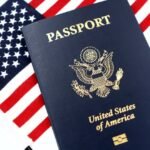Dreaming of traveling the world but worried about the cost? You’re not alone. Many beginner travelers assume exploring new places requires a big budget but that’s not true. With the right strategies, you can travel affordably and still enjoy an enriching experience. Budget travel isn’t just about cutting corners it’s about making smart choices that stretch your money further.
From choosing low-cost destinations and traveling during off-peak seasons to using apps that track cheap flights and staying in hostels or local guesthouses, there’s a lot you can do to cut costs. This guide shares practical, beginner-friendly budget travel tips that help you see more of the world with less money. Whether you’re planning your first trip or looking to refine your travel style, these insights will make your journey more affordable and enjoyable.
1. Travel Off-Peak to Save Big
One of the easiest ways to travel on a budget is by avoiding high season. Flights and accommodations can be significantly cheaper in the shoulder or off-peak seasons. Not only do you save money, but you’ll also avoid crowds and have a more relaxed experience. Look for destinations that offer year-round value, such as Southeast Asia in the rainy season or Europe in early spring.
2. Be Flexible With Your Dates and Destination
Flexibility is one of the biggest advantages you can have when traveling on a budget. Use flight comparison tools to search for the cheapest dates to fly. Consider alternative airports or lesser-known destinations that offer similar experiences for a fraction of the cost. If you’re open to spontaneity, last-minute travel deals can also help you score discounts on flights and accommodation.
3. Use Budget-Friendly Booking Tools
Websites and apps like Skyscanner, Hopper, and Google Flights are invaluable for finding flight deals. For accommodations, platforms like Hostelworld, Booking.com, and Airbnb offer affordable stays. Look for hostels with shared kitchens or free breakfast to save on food. If you’re really pinching pennies, try Couchsurfing or house-sitting platforms, which can offer free accommodation in exchange for simple tasks.
4. Set a Daily Travel Budget
Without a clear daily spending limit, it’s easy to go over budget. Calculate how much you can afford per day and divide it between food, transport, and activities. Use budgeting apps like Trail Wallet or TravelSpend to track expenses on the go. If you find yourself overspending in one category, adjust accordingly in another to stay on track.
5. Choose Local Eats and Street Food
Skip the touristy restaurants and eat where locals eat. Street food, local diners, and small markets often offer authentic meals at a fraction of the price. In many countries, street food is not only delicious and affordable but also a part of the cultural experience. If your accommodation has a kitchen, buy groceries and cook a few meals yourself to cut down food expenses.
6. Use Public Transport and Walk More
Instead of taxis or car rentals, use buses, trains, and metro systems. They’re significantly cheaper and give you a more immersive view of daily life in your destination. Walking is also a great way to explore a city—it’s free and often leads to unexpected discoveries. Consider downloading offline maps to navigate without using data.
7. Pack Light to Avoid Fees
Traveling with only carry-on luggage saves you from extra airline fees and makes getting around easier. Pack multi-purpose clothing, and plan for laundry once a week. Use packing cubes to organize efficiently, and bring reusable items like a water bottle, utensils, and a foldable shopping bag to reduce costs and waste.
8. Book Accommodations With Perks
Look for accommodations that offer extra value. Free breakfast, airport transfers, Wi-Fi, or access to a kitchen can help you save money in small ways that add up. If you’re staying longer than a few days, some hostels and guesthouses offer discounts for extended stays.
9. Prioritize Free and Low-Cost Activities
You don’t need to spend a lot to enjoy your destination. Many cities offer free walking tours, museum entry days, public events, and open parks or trails. Before your trip, research free attractions and experiences available. Download city guides or join travel forums to discover budget-friendly things to do.
10. Use Travel Credit Cards Wisely
Travel credit cards can help you earn points or cashback on your spending, which can be used toward flights or hotels. Choose cards with no foreign transaction fees and consider signing up for cards that offer travel-related perks like free checked bags or airport lounge access. Just be sure to pay off your balance each month to avoid interest charges.
11. Consider Volunteering or Work Exchanges
Platforms like Workaway, WWOOF, and Worldpackers allow travelers to work a few hours per day in exchange for free lodging and sometimes meals. Tasks range from hostel reception to farm work or language teaching. It’s a great way to immerse yourself in a culture while keeping costs down.
12. Travel Insurance is Not Optional
While it might seem like an unnecessary expense, travel insurance can save you from massive bills in case of emergencies. Look for affordable coverage that includes medical care, trip cancellations, and lost baggage. Peace of mind is priceless, especially when traveling on a budget.
Read More: Solo Travel Safety Tips for Women: Expert Advice & Real‑World Strategies
Conclusion
Traveling on a budget doesn’t mean missing out on the fun it means being strategic and intentional with how you spend. As a beginner, the key to budget travel is preparation and flexibility. From finding affordable flights and accommodations to eating local and exploring free activities, every decision contributes to a smoother and more economical journey. Start small, track your spending, and adjust as you go.
Remember that every budget traveler started somewhere mistakes will happen, but each trip will teach you something new. Traveling is not just about destinations but also about the journey and the experiences you collect along the way. With the right mindset, a solid plan, and the tips in this guide, you’ll soon discover that the world is more accessible and more affordable than you ever imagined. Don’t wait for the “perfect” time. Start planning, start exploring, and start saving today.
People Also Ask (FAQs)
1. What are the best budget travel tips for beginners?
Start by booking flights early, using public transport, staying in budget accommodations, eating local food, and avoiding peak seasons.
2. How much money do I need for budget travel?
It varies, but many beginner budget travelers can get by on $50–$100 per day depending on the destination and travel style.
3. Is budget travel safe for solo travelers?
Yes. Stick to well-reviewed accommodations, keep your valuables secure, and follow local advice. Many solo travelers use budget methods safely.
4. How can I find cheap flights?
Use flight comparison tools like Google Flights or Skyscanner, search in incognito mode, and be flexible with dates and airports.
5. Are hostels a good option for first-time travelers?
Absolutely. Hostels are affordable, social, and often offer perks like free breakfasts, kitchens, and group activities for travelers.





